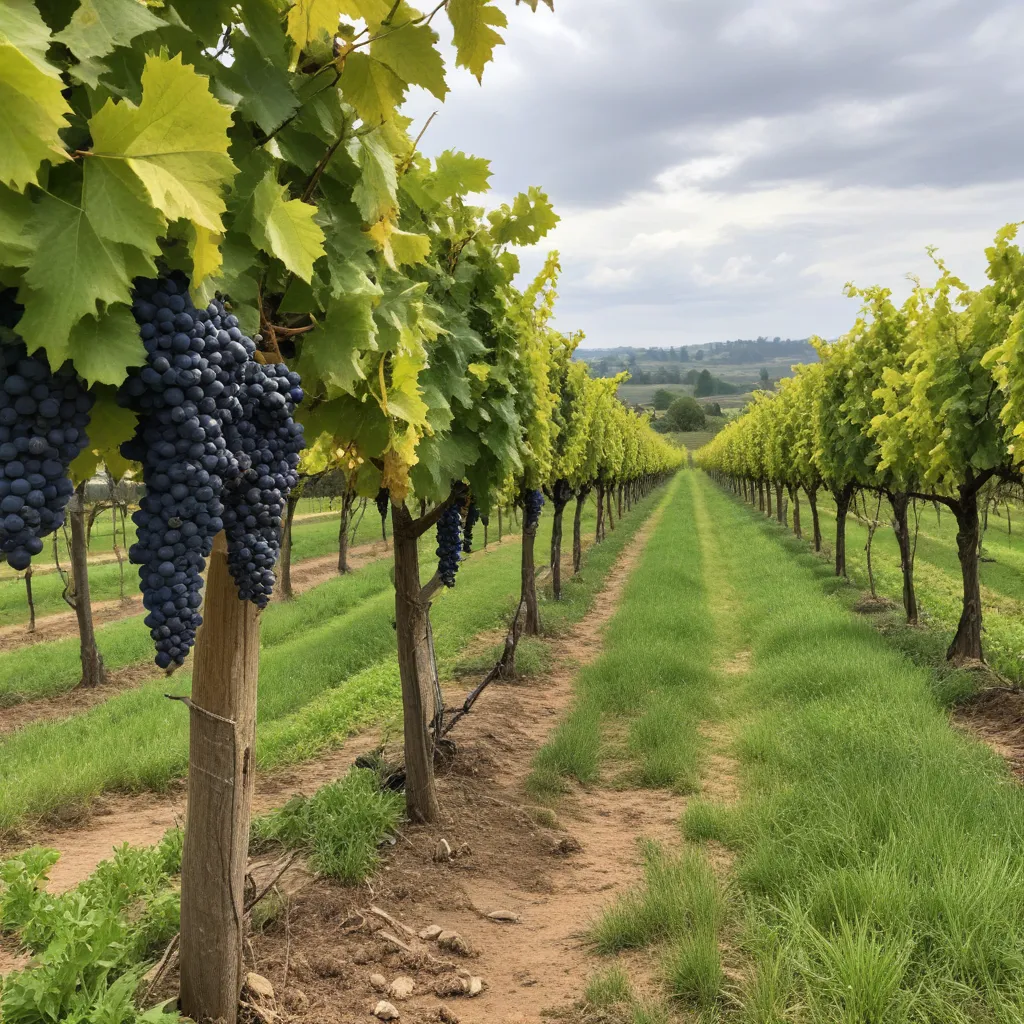
At the Wine Garden Inn, we are committed to sustainable practices that protect the land for generations to come. As both a hospitality destination and a working winery, we deeply appreciate the delicate balance between cultivating exceptional wines and preserving the natural environment. Our winemaking journey is rooted in a profound respect for the terroir, driven by a desire to nurture the land and its diverse ecosystem.
Organic Farming Techniques
In our vineyards, we eschew the use of synthetic pesticides and fertilizers, opting instead for organic farming methods that enhance soil health and promote biodiversity. By leveraging natural processes, we can control pests and nourish the vines without compromising the integrity of the land. Our viticulturists carefully monitor soil nutrient levels and adjust our practices accordingly, ensuring that the land remains vibrant and productive for years to come.
Biodynamic Farming Approaches
Beyond organic techniques, we have also embraced biodynamic farming principles, which view the vineyard as a self-sustaining, interconnected ecosystem. By incorporating preparations made from plant, animal, and mineral substances, we stimulate the natural rhythms of the land, fostering a harmonious relationship between the vines, the soil, and the surrounding environment. This holistic approach not only enhances the quality of our grapes but also contributes to the overall health and resilience of our estate.
Precision Agriculture Methods
In addition to our organic and biodynamic practices, we have also implemented precision agriculture techniques to further refine our approach to sustainable viticulture. By utilizing advanced technologies such as GPS-guided tractors, remote sensing, and data analytics, we can precisely tailor our management strategies to the unique needs of each vineyard block. This level of granular control allows us to minimize resource consumption, reduce waste, and ensure that every aspect of our operation is aligned with our commitment to sustainability.
Soil Health and Nutrient Management
At the heart of our sustainable viticulture practices is a deep understanding of soil health and nutrient cycling. We regularly test our soil’s acidity levels, organic matter content, and mineral composition, using this data to implement targeted amendments and cultivation techniques. By maintaining optimal soil conditions, we can support the long-term viability of our vines, ensuring that they thrive and produce exceptional fruit year after year.
Water Conservation Strategies
Water is a precious resource, and we recognize the importance of employing water-saving strategies in our vineyards. We have invested in drip irrigation systems, which deliver water directly to the roots of the vines, minimizing evaporation and runoff. Additionally, we have incorporated cover crops and mulching techniques to retain soil moisture and reduce the need for supplemental irrigation.
Biodiversity Enhancement
Sustainability in viticulture extends beyond the health of our vines; it also encompasses the preservation of the broader ecosystem. We have dedicated significant acreage to ecological compensation areas, including old-growth oak forests and diverse native plant habitats. By protecting and enhancing biodiversity, we not only support the overall ecological balance of our estate but also create a more resilient and adaptable viticultural system.
Energy-Efficient Production Methods
Our commitment to sustainability extends to the winemaking process itself. We have implemented a range of energy-efficient production methods, such as utilizing solar power, optimizing our equipment for energy consumption, and minimizing the use of fossil fuels in our transportation and logistics operations. By reducing our carbon footprint, we can further align our winemaking practices with our broader environmental stewardship goals.
Waste Reduction and Recycling
In addition to our energy-saving initiatives, we have also developed comprehensive waste reduction and recycling programs throughout our winery and hospitality operations. From composting our organic waste to implementing closed-loop water systems, we strive to minimize our environmental impact at every stage of our winemaking journey.
Sustainable Packaging Solutions
As we continue to evolve our sustainable practices, we have also turned our attention to the packaging and distribution of our wines. We have explored a range of eco-friendly packaging options, including lightweight bottles, recycled and recyclable labels, and biodegradable shipping materials. By optimizing our packaging for sustainability, we can further reduce our carbon footprint and promote the responsible consumption of our wines.
Climate Change Adaptation Strategies
Looking to the future, we recognize the importance of adapting our viticultural practices to the challenges posed by climate change. We are closely monitoring weather patterns, evaluating the resilience of our grape varietals, and experimenting with innovative irrigation and canopy management techniques to ensure the long-term sustainability of our vineyard. By proactively addressing the impacts of a changing climate, we can safeguard the land for future generations of vintners and wine enthusiasts.
Generational Knowledge Transfer
At the Wine Garden Inn, we are fortunate to have a rich history of winemaking, with generations of family-owned vineyards passing down their expertise and insights. By fostering this intergenerational knowledge exchange, we can ensure that our sustainable practices are continuously refined and improved, drawing upon the collective wisdom of our past and present stewards of the land.
Long-Term Sustainability Planning
Ultimately, our commitment to sustainable viticulture is not a short-term endeavor, but a holistic and ongoing process. We have developed comprehensive long-term sustainability plans that address every aspect of our operations, from vineyard management to winemaking to hospitality. By aligning our actions with our values, we can create a legacy of environmental responsibility and ensure that the Wine Garden Inn continues to thrive for generations to come.
As we move forward on our winemaking journey, we remain steadfast in our commitment to sustainable viticulture. Through our innovative farming techniques, thoughtful environmental stewardship, and long-term planning, we are confident that we can preserve the land and continue to craft exceptional wines that delight our guests and honor the rich terroir of our estate. Join us as we embark on this sustainable winemaking adventure, where the art of hospitality and the science of viticulture converge to create an unparalleled experience.
